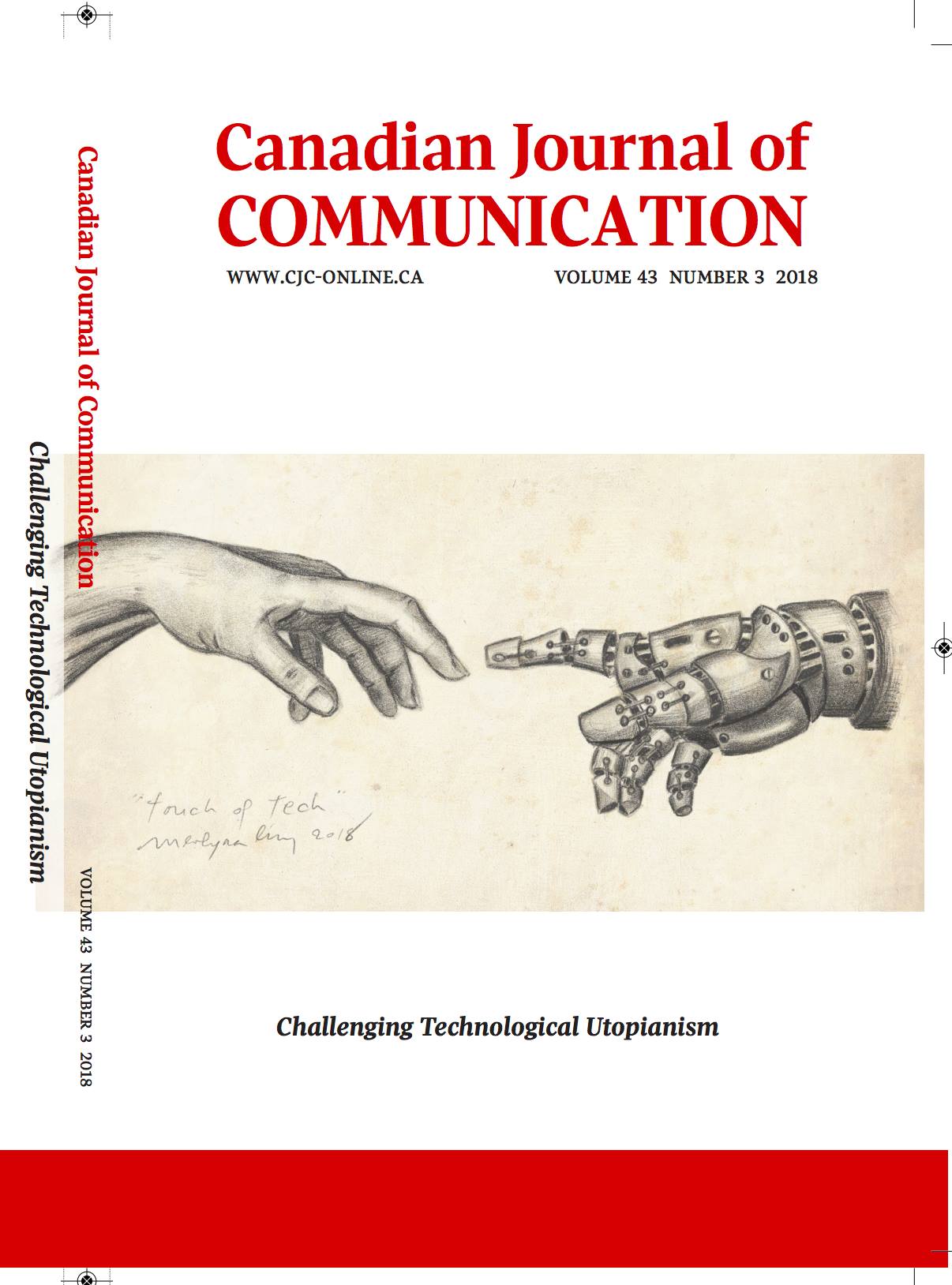I am truly excited to announce the publication of a special issue on “Challenging Technological Utopianism” in the Canadian Journal of Communication, Volume 43 No. 3.
https://www.cjc-online.ca/index.php/…/issue/view/171/showToc
 All of the authors are affiliated with the communication program at Carleton University’s School of Journalism and Communication in Ottawa, as graduate students and faculty members. This special issue is in celebration of the 40th anniversary of the program and it offers notable insight to mark the occasion.
All of the authors are affiliated with the communication program at Carleton University’s School of Journalism and Communication in Ottawa, as graduate students and faculty members. This special issue is in celebration of the 40th anniversary of the program and it offers notable insight to mark the occasion.
It was a privilege to work with amazing scholars from my own academic home — they are great writers and critical thinkers as well as kind, generous, and decent human beings!
Table of contents:
Guest Editorial: “Challenging Technological Utopianism” by Merlyna Lim
Articles:
“’Ain’t nobody got time for that!’: Framing and Stereotyping in Legacy and Social Media” by Kathy Dobson and Irena Knezevic
“Too Crowded for Crowdsourced Journalism: Reddit, Portability, and Citizen Participation in the Syrian Crisis” by Scott S.D. Mitchell and Merlyna Lim
“Seal Hunts in Canada and on Twitter: Exploring the Tensions between Indigenous Rights and Animal Rights with #Sealfie,” by Irena Knezevic, Julie Pasho, and Kathy Dobson
“Programming Sex, Gender, and Sexuality: Infrastructural Failures in ‘Feminist’ Dating App Bumble” by Rena Bivens and Anna Shah Hoque
“Unveiling Saudi Feminism(s): Historicization, Heterogeneity, and Corporeality in the Women’s Movements” by Merlyna Lim
All articles in this special issue break away from the preoccupation with the role and impact of technology, prone to overlooking socio-political contexts, neglecting history, and decentring human agency. They do so by decentring technology and, instead, paying attention to socio-political and historical contexts, and centring human experiences and agency. Collectively, they offer multiple epistemological insights into the multifaceted relationship between technology and society. Utilizing diverse methods of analysis and informed by theories and knowledge from varied perspectives—such as critical communication studies, humanities, feminist studies, and platform studies—they generate nuanced narratives that highlight the heterogeneity and complexity of technology-society relations. Dealing with pressing social issues such as inequality, justice, sexism, racism, and poverty, these articles also reveal ontological relationships between technology and identities: gender, sexuality, class, and race. Together, these articles attempt to disturb the persistence of the binary opposition of the utopia-dystopia, optimist-pessimist, and positive-negative views of technology.
